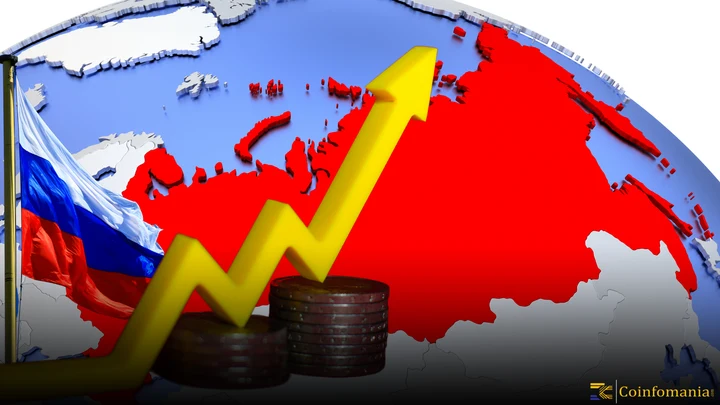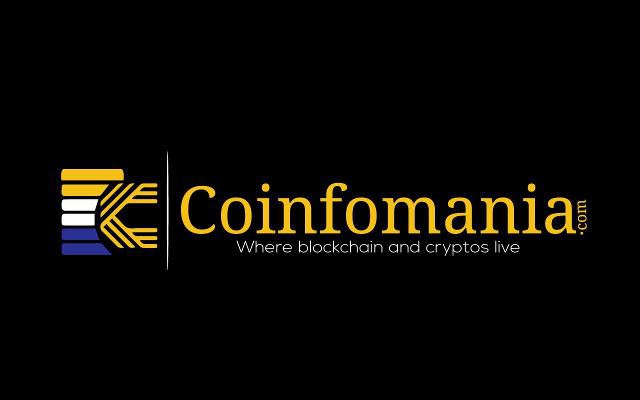Russia’s Economic Expansion at Risk As Inflation and Interest Rates Climb
0
0

Ever since the Russian invasion of Ukraine in 2022, the country has been assailed by blanket sanctions globally. Despite this, official data shows that Russia’s economy grew by 4.3% in 2024. This growth outpaced all G7 nations, namely Canada, France, Germany, Italy, Japan, the UK, and the US. The growth was mainly driven by increased military spending and consistent oil exports. A network of “shadow fleet” tankers also helped to bypass oil shipment sanctions against Russia. All these together helped to continue the country’s economic growth in the past year.
Russia’s inflation and Labor Shortages Lead to Rising Interest Rates
Russia’s economy outlook is growing more uncertain and complicated. Russia’s inflation rate hit 9.9% in the year to April 2025. High inflation is partially caused by increasing import prices due to Western sanctions. Labor shortages are also a factor, with an estimated 2.6 million workers reportedly absent. Many have enlisted in the military or fled to escape conscription. The central bank has been raising interest rates to around 20% to fight inflation. This rise costs money to borrow and discourages business investment.
Economists offer mixed views on Russia’s economic future under these pressures. Yevgeny Nadorshin, a Moscow economist, told BBC News the country faces a “pretty uncomfortable situation until late 2026.” However, he rejected claims of a complete economic collapse. Russia’s unemployment rate stands at a historic low of 2.3%. Nadorshin expects a modest rise to 3.5% next year. He said, “Without any single doubt, the Russian economy has experienced recessions deeper than this.” Nonetheless, he predicts more defaults and bankruptcies as growth slows and the rising interest rates worsen
Declining Oil Revenues Contribute to Expanding Budget Deficit
Russia’s public finances are facing increasing strain from shrinking energy revenues. Official figures had oil and gas revenues dropping 35% year-on-year in May 2025. This has driven the budget deficit wider. The government is prioritizing military spending over infrastructure expenditure. Political analyst András Tóth-Czifra said, “They have this large pot of expenditure for the military that can’t be touched.” This hurts the quality of public services and infrastructure maintenance.
Western Sanctions Disrupt Key Industries and Limit Growth Prospects
Sanctions also restrict Russia’s economy’s access to foreign markets and technologies, damaging key industries. The European Union banned coal imports and plans to end Russian gas imports by 2027. Tóth-Czifra said such measures may not have a direct effect on military expenditure. However, they hinder long-term economic diversification and growth. These challenges make Russia’s future beyond the war more difficult financially. The sanctions are restructuring the country’s industrial base and energy sector.
Kremlin Maintains Optimism Despite Long-Term Economic Risks
Despite difficulties, the Kremlin stresses that Russia’s economic strength and stability remain intact. Spokesperson Dmitry Peskov stated in June 2025 that “macroeconomic stability” and “underlying strength” continue. Yet experts like Dr. Katja Yafimava from Oxford highlight ongoing challenges. She said, “It’s next to impossible to see a big return to Europe buying Russian oil and gas.” The war is likely to cause long-lasting economic damage to Russia. The government faces limited options to counteract these mounting pressures.
The post Russia’s Economic Expansion at Risk As Inflation and Interest Rates Climb appeared first on Coinfomania.
0
0
 Manage all your crypto, NFT and DeFi from one place
Manage all your crypto, NFT and DeFi from one placeSecurely connect the portfolio you’re using to start.




